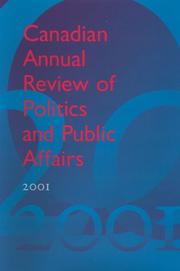| Listing 1 - 10 of 12 | << page >> |
Sort by
|
Book
Year: 1999 Publisher: Saint-John's Memorial university of Newfoundland
Abstract | Keywords | Export | Availability | Bookmark
 Loading...
Loading...Choose an application
- Reference Manager
- EndNote
- RefWorks (Direct export to RefWorks)
Book
Year: 1955 Publisher: New York King's Crown Press
Abstract | Keywords | Export | Availability | Bookmark
 Loading...
Loading...Choose an application
- Reference Manager
- EndNote
- RefWorks (Direct export to RefWorks)
Book
ISBN: 0228007062 0228007054 9780228007067 9780228007050 0228006317 Year: 2021 Publisher: Montreal : McGill-Queen's University Press,
Abstract | Keywords | Export | Availability | Bookmark
 Loading...
Loading...Choose an application
- Reference Manager
- EndNote
- RefWorks (Direct export to RefWorks)
"No other figure, historical or political, features more prominently in recent Newfoundland history than Joey Smallwood. During his long career in Newfoundland politics, Smallwood used the literary, rhetorical, and theatrical skills honed in the first five decades of his life to create a distinct and celebrated persona. He authored the narrative of his own life and told his story in his lively autobiography, I Chose Canada, published in 1973 only a year after he left office. Talented, venturesome, and above all resilient, he was no ordinary Joe. Smallwood was born in Gambo, Bonavista Bay, but grew up in St John's. Leaving school at fifteen, he quickly established himself as a journalist and as a publicist for Sir William Coaker's Fishermen's Protective Union. In the early 1920s Smallwood sojourned twice in New York, where he planned a Newfoundland labour party. Ambition, however, led him to support the Liberal Party of Sir Richard Squires. Defeated as a candidate in the general election of June 1932, he next promoted producer and consumer cooperatives, but with mixed results. In 1937 he edited The Book of Newfoundland and thereafter enjoyed great success on the radio as 'The Barrelman.' The book culminates with Smallwood's adoption of the cause of Confederation and his swearing in on 1 April 1949 as premier of the new Province of Newfoundland. There are multiple J.R. Smallwoods, but the aspiring and ambitious figure presented in this biography stands apart. Melvin Baker and Peter Neary use the largely untapped sources of Smallwood's own papers and his extensive journalistic writing to add a documentary basis to what is known or conjectured about the first five decades of Smallwood's remarkable life, both public and private."--
Journalists --- Politicians --- Smallwood, Joseph R., --- Newfoundland and Labrador --- Politics and government
Book
Year: 1966 Publisher: New York, NY : Atherton press,
Abstract | Keywords | Export | Availability | Bookmark
 Loading...
Loading...Choose an application
- Reference Manager
- EndNote
- RefWorks (Direct export to RefWorks)
Book
ISBN: 0889776091 0889776083 9780889776098 9780889776081 Year: 2019 Publisher: Regina, Saskatchewan : University of Regina Press,
Abstract | Keywords | Export | Availability | Bookmark
 Loading...
Loading...Choose an application
- Reference Manager
- EndNote
- RefWorks (Direct export to RefWorks)
"'A masterful examination of Newfoundland-Canada relations from 1869-1949'--Corey Slumkowski, author of Inventing Atlantic Canada: Regionalism and the Maritime Reaction to Newfoundland's Entry into Canadian Confederation. Coming on the 70th anniversary of Newfoundland joining Confederation, as well as the 150th anniversary of its first rejection of Canada, Where Once They Stood challenges popular notions that those who voted against Confederation in 1869 and for union with Canada in 1948 were uninformed, incompetent, ignorant, and gullible. Raymond B. Blake and Melvin Baker demonstrate that, in fact, voters fully understood the issues at stake in both cases, and in 1948 women too became instrumental in determining the final outcome, voting for Canada, believing it provided the best opportunities for their children. 'Blake and Baker make a persuasive case, turn[ing] the conspiracy on its head and demonstrat[ing] how Newfoundlanders knew what they were doing and expressly acted in their own self-interest when they chose Canada. . . . It is hard to imagine any two other authors who would know more about the subject.' --David MacKenzie, author of Inside the Atlantic Triangle."--
Newfoundland and Labrador --- Politics and government. --- History.
Multi

ISBN: 9781442672130 9780802090898 Year: 2016 Publisher: Toronto, Ont. University of Toronto Press
Abstract | Keywords | Export | Availability | Bookmark
 Loading...
Loading...Choose an application
- Reference Manager
- EndNote
- RefWorks (Direct export to RefWorks)


ISBN: 9781442684126 9780802092359 Year: 2016 Publisher: Toronto, Ont. University of Toronto Press
Abstract | Keywords | Export | Availability | Bookmark
 Loading...
Loading...Choose an application
- Reference Manager
- EndNote
- RefWorks (Direct export to RefWorks)
Multi

ISBN: 9781442687523 9780802098191 1442687525 Year: 2016 Publisher: Toronto, Ont. University of Toronto Press
Abstract | Keywords | Export | Availability | Bookmark
 Loading...
Loading...Choose an application
- Reference Manager
- EndNote
- RefWorks (Direct export to RefWorks)
Multi

ISBN: 9781442697782 9780802099853 Year: 2016 Publisher: Toronto, Ont. University of Toronto Press
Abstract | Keywords | Export | Availability | Bookmark
 Loading...
Loading...Choose an application
- Reference Manager
- EndNote
- RefWorks (Direct export to RefWorks)
Multi

ISBN: 9781442663435 9781442645691 Year: 2016 Publisher: Toronto, Ont. University of Toronto Press
Abstract | Keywords | Export | Availability | Bookmark
 Loading...
Loading...Choose an application
- Reference Manager
- EndNote
- RefWorks (Direct export to RefWorks)
| Listing 1 - 10 of 12 | << page >> |
Sort by
|

 Search
Search Feedback
Feedback About UniCat
About UniCat  Help
Help News
News